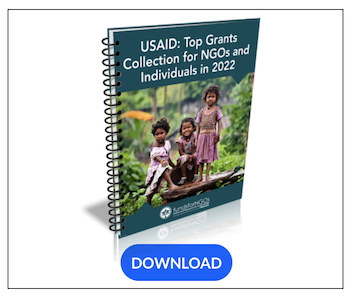
Deadline: 3-Oct-22
The Fondation Segré Conservation Action Fund is now open for applications to enable and support Civil Society Organizations engaged in the conservation of Endangered (EN) or Critically Endangered (CR) Lizards, Snakes and Worm Lizards (Amphisbaenians) to carry out conservation projects that can apply sustainable conservation measures to protect these species, their habitats and to improve the livelihoods of the people who depend on them.
Thematic focus
- The latest Global Reptile Assessment published on the IUCN Red List of Threatened SpeciesTM, revealed that more than one in five of the world’s reptiles are threatened with extinction.
- To echo the need to ramp up global efforts to conserve them, this year’s Call for Proposals support s specifically the conservation of Endangered (EN) and Critically Endangered (CR) squamates (Squamata) – collectively known as “scaled reptiles” – the largest order of reptiles and most diverse of all the reptile groups.
Funding Information
- The Fund provides two types of small grants:
- Conservation Action Grants (maximum EUR 50,000) the objective of these grants is to enable and support CSOs engaged in the conservation of threatened animal species to carry out sustainable conservation measures at local level to protect the species, their habitats and to improve the livelihoods of the people who depend on them.
- Research Support Grants (maximum EUR 7,000) the objective of these grants is to support young and early scientists in their research to improve knowledge on threatened species and their role in natural ecosystems. These grants intend to provide budding researchers (enrolled in a curriculum) the opportunity to mature into seasoned conservationists, while benefitting the conservation and management of threatened animal species.
- The maximum duration of the project should be 12 months. The start date of the project will be determined by the date of the signature of the grant agreement.
Eligible Activities
- Projects must implement concrete conservation activities on the ground. v. Research activities can be eligible within the framework of Conservation Action Grants as long as the proposal supports tangible conservation actions on-the-ground, using the results of the research within the timeframe of the project (pure research projects are not eligible). For example, proposal of a practical management plan or new policy, or new protected area design, new natural resources management plan, in vivo pilot site activities implementing the results of the research with new management or improved or adapted conservation actions.
- Applications that address illegal wildlife trade and that include a component engaging indigenous peoples or local communities should include clear thinking on the “theory of change” or logical sequence that is likely to lead to a reduction in poaching for the illegal wildlife trade, with attention to the underlying incentives facing community members and how the project intervention changes these. Where this is not known, the proposal should explain how this understanding will be increased in order to formulate such a theory of change.
Eligibility criteria
- In order to be eligible for a grant, the lead applicant and co-applicants must be:
- A legal person and;
- Be non-profit-making and;
- Be a local or national civil society organization (CSOs3
- A local or an international nongovernmental organization (NGOs);
- Project s presented by local and national CSOs including indigenous organizations (community-based organizations) will be favorably considered. International NGOs applying will be required to work closely with national stakeholders, local communities and with the consent and all required authorizations from the government. If international NGOs apply, overseas costs (indirect costs, salaries and international travel) will have to be minimal and justification for their need provided. In the case of international NGOs having a legally registered office in the country where the project is implemented, SOS will privilege the signature of a grant agreement and direct transfer of funds to their local registered office.
- Working with governments is encouraged although governments and government-affiliated entities are not eligible to receive grants directly. The costs of travel for government bodies (for example for attending a workshop) can be funded if they are directly linked to the project;
- Be directly responsible for the preparation and implementation of the grant project .
- Applications submitted by a body acting as an intermediary for a third party are not eligible;
- Have a bank account in the name of the organization;
- Be authorized under relevant national laws to receive charitable contributions, including from sources outside their respective countries.
- In line with the Fund’s objective, target beneficiaries are primarily local non-profit organisations;
- The lead partner may act individually or with co-applicant(s). If awarded a grant, the lead partner will become the beneficiary identified as the “Grantee” in the grant contract. The Grantee is the main interlocutor of the IUCN Save their Species Secretariat. The Grantee represents, and acts on behalf of any other co-applicant (if any) and coordinates the design and implementation of the action. The Grantee will bear full responsibility for the technical and financial implementation of the project.
For more information, visit https://speciesgrants.iucn.org/
